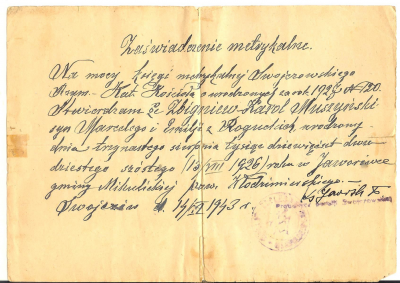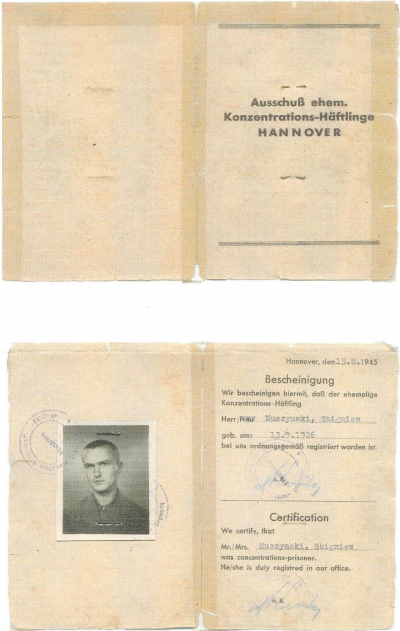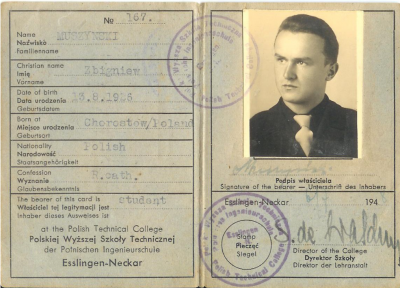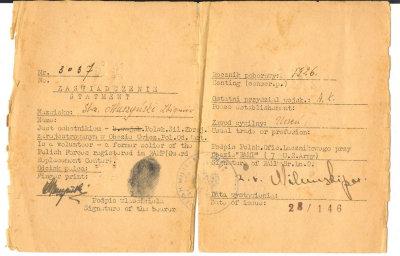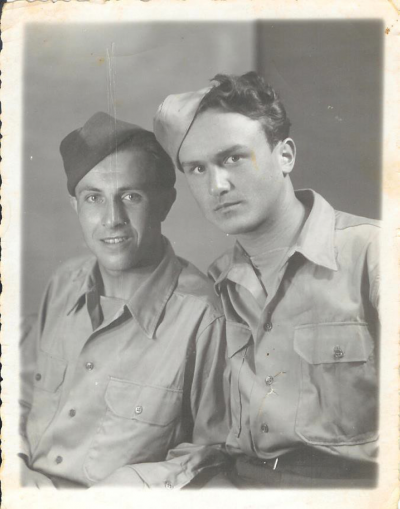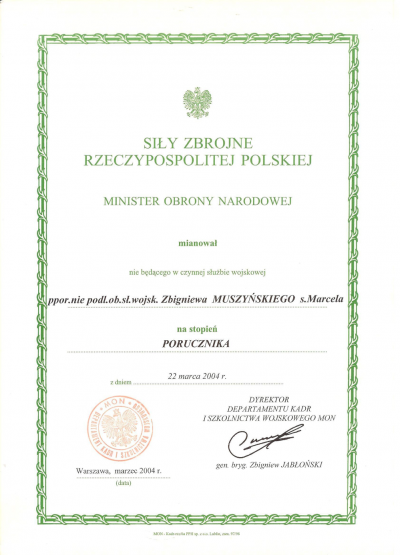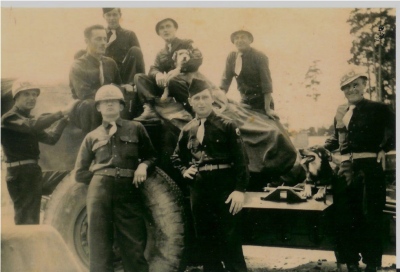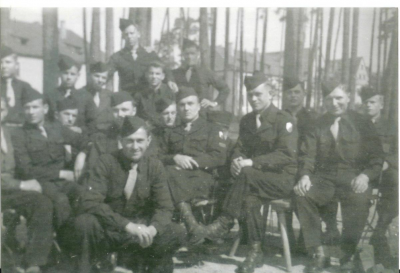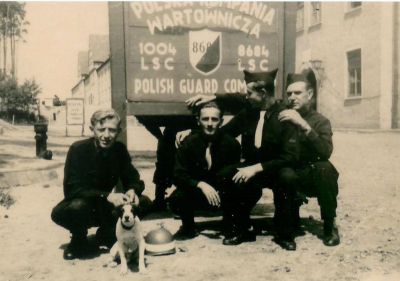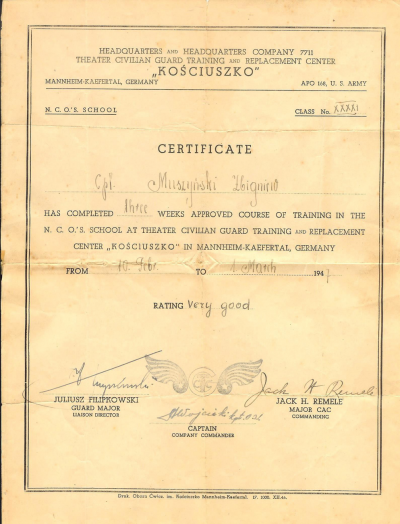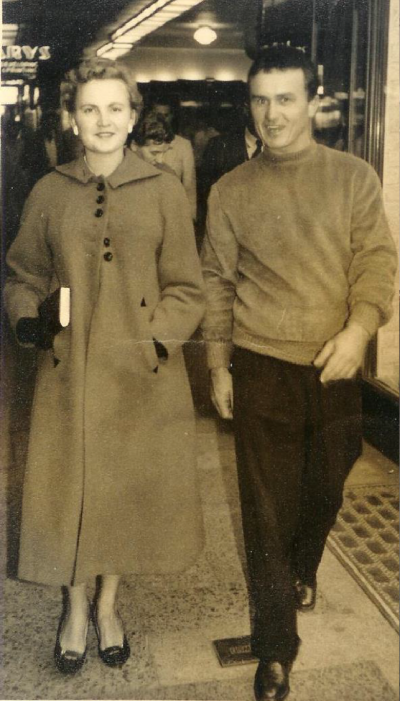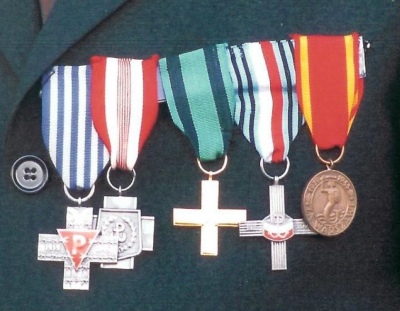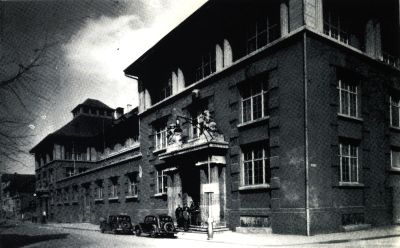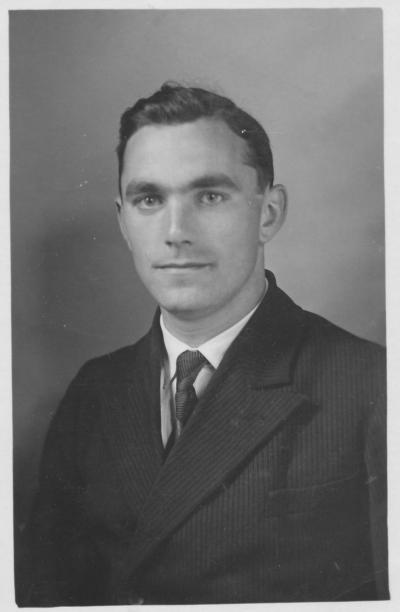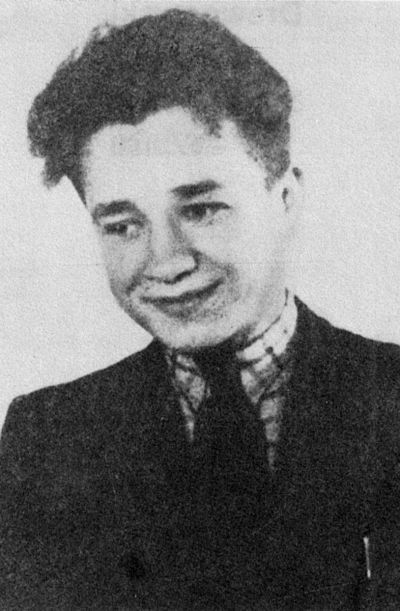"I was in a concentration camp": Zbigniew Muszyński
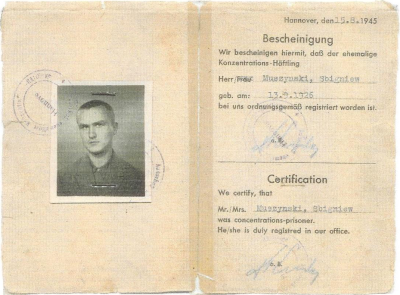
In the spring of 1944 year, when the Soviet army re-entered the territory of Volyn, Zbigniew with the partisans went across the Bug river to Poland. Under fire, the partisans spread out, each trying to reach Poland on their own. Those who went to the right, were betrayed by the Ukrainians and fell into a German ambush. Zbigniew went left with two captured horses, and went to his sister in Hrubieszów.
From Hrubieszów, he travelled to Warsaw, where the Polish Home Army (underground) arranged for documents and work in the warehouse near Marszałkowska str. He learned with whom he could talk and who was a traitor. The Home Army initially proposed to send him to partisans in nearby woods, but Zbigniew wanted to see Warsaw.
He lived in the Catholic sisters Ursuline home on Dobra Street in the Powiśle district. The day before the uprising, he met a colleague Janusz Słotkowski, a partisan from Bielin.
On August 1, 1944 the Warsaw Uprising began. Zbigniew was assigned to the Krybar Home Army group in the Powiśle distrct. Under the pseudonym ' Little’, he fought until the last day before the capitulation of Powiśle. His task was to observe the Kierbedzia Bridge, which was in the hands of the Germans. The post was located at the Ursuline Sisters on Dobra Street on the top floor. Zbigniew, as an 18-year-old, was the oldest of the observers and commanded them. Daily, he made a report on movements on the bridge by a courier, who arrived from the Krybar district headquarters at the power plant. At other times, he was a courier in the Old Town district, and the Mariensztat district (here was almost shot dead). He also collected items dropped from allied aircraft and fought at the post on Dobra Street.
They read the Polish Home Army news bulletin and listened to the Polish radio station. One day, a few of the Polish soldiers saw some English planes. One of them flew from the Poniatowski Bridge towards the Kierbedzia Bridge. It did not drop anything but, was shot down by the Germans. Zbigniew saw the plane falling on the German side of the bridge.
The Russian Army stood on the other side of the river and watched the burning and fighting in the town. Stalin did not allow English planes to land on their side. English planes often carried weapons and food for Warsaw fighters and civilians from the UK or Italy. One day, Polish soldiers from the Russian Army of Polish Generl Berling’s division, swam the Vistula river to help. They asked the Home Army soldiers what kind of weapons they had for attacking tanks. When Zbigniew’s men showed them their Molotov cocktails, they said 'Kiss our arse’ and returned by the same path to their own side. Such was the meeting of Poles from the Red Army and Zbigniew and his Home Army colleagues.
The Ursuline Sisters nursed children and the injured and, fed all who were hungry. As a result, Zbigniew was well nourished by the end of the uprising. He said that been an anaesthesiologist, that is, he helped by holding down patients while they were operated on without anaesthesia. He also helped putting out fires after German bombardments.
The civilian population moved through the cellars and, had dug from the Ursuline Sisters in the direction of the Poniatowski Bridge. At one point, stuck in the congestion in the narrow corridors, people asked Zbigniew for help, he had a rifle with a single cartridge. They let him through and, it turned out that in one room a woman with a large dog sat and wouldn’t let anyone to pass. He ordered her to remove herself and her dog.
He went further and, at the exit of the cellar tunnel, encountered three Germans who were stealing from the civilians all they had, taking watches and rings. The square was filled with hundreds of civilians.
Zbigniew’s colleague shot one of the Germans. The other held a hand grenade. Zbigniew aimed at him with his rifle. Neither fired as there were too many civilians around. Suddenly a German plane flew in and dropped a bomb close, on the right. The Germans fled and the civilians ran out to seek refuge.
On the right side of Karowa Street was the hospital. The Home Army ordered the evacuation of their wounded from the hospital at Ursuline Sisters. Zbigniew with his colleagues moved them and put them in the square in front of the building. There was no place inside. Lying there, the sick and injured asked them to kill them.
The partisans defended themselves to the last bullet, showing huge heroism during the defence of the power plant, which was regularly bombarded by the Germans. They only surrendered after orders were issued by the Home Army on the 7th of September 1944. They went out to the square, and handed over their remaining weapons. The Germans ordered them to go in the direction of train station.
He was put in a transitional camp in Pruszków, from where Germans loaded the whole group from Powiśle into freight wagons. They were told that they were going to Vienna. A couple days later they got out in Dachau concentration camp. After surrender, the Home Army soldiers should have been treated as prisoners of war. Instead, they were treated like bandits.
